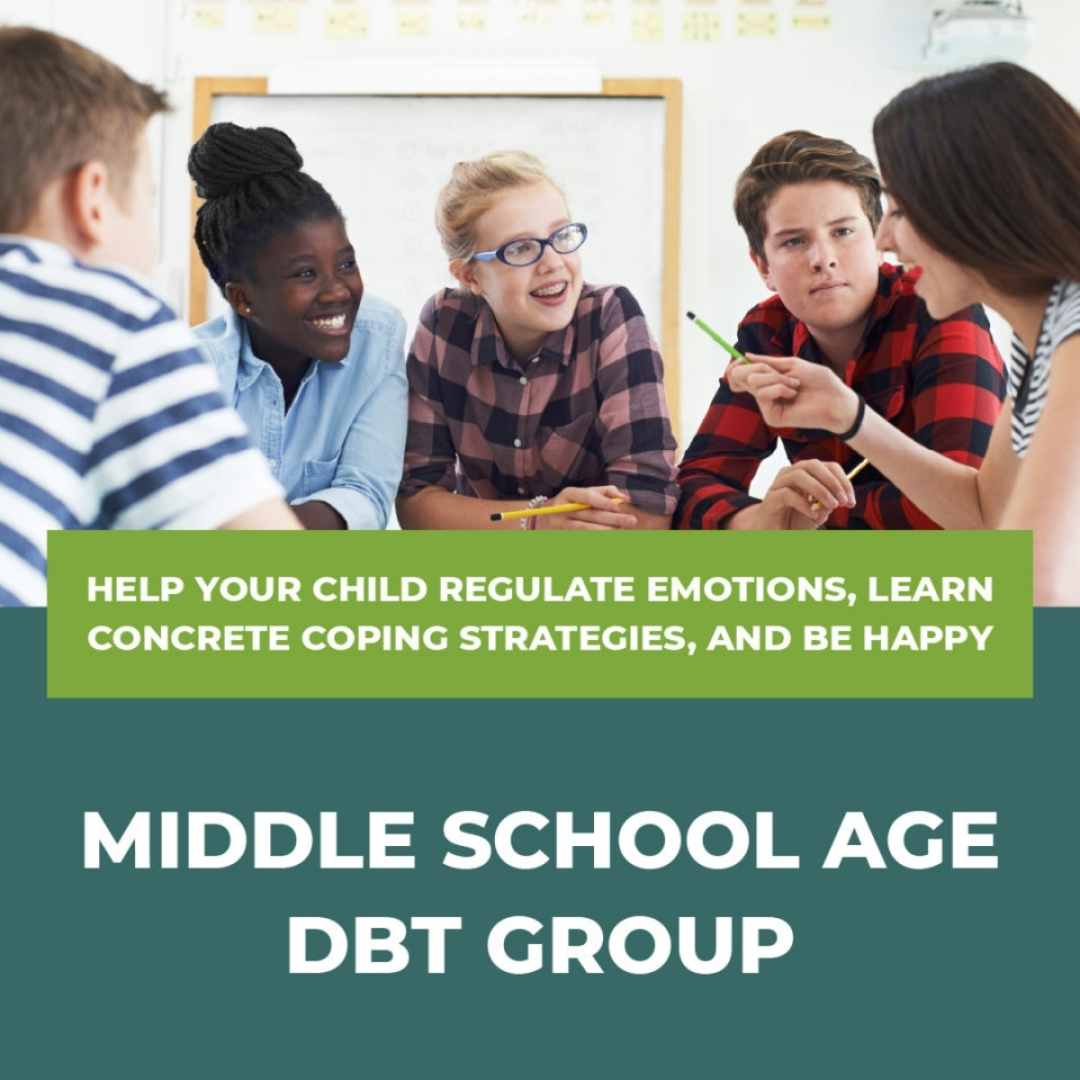
Dialectical Behavior Therapy
in Houston, TX and Online
Dialectical Behavioral Therapy
Do these phrases sound familiar? If so, Dialectical Behavioral Therapy (DBT) may be right for you. This long-standing form of talk therapy has been used across the board to support everyday people like yourself to instill emotional perseverance and “distress tolerance”. The goal is to support a positive quality of life, while improving communication in relationships, work environments, and beyond! Let’s start with some commonly asked questions about DBT therapy. Similar to Cognitive Behavioral Therapy (CBT), DBT is a form of talk therapy specifically designed to help those who experience emotions more fiercely. In fact, DBT therapy was modeled after the client-driven framework of CBT to create a specialized form of talk therapy geared towards regulating emotions. By learning to emote in a healthy and non-destructive way, we can support healthy relationships and prevent harm towards ourselves and others.
What is DBT Therapy?

Who Can Benefit from Dialectical Behavioral Therapy (DBT)?
DBT is commonly used to treat issues like:
- Borderline personality
- Self-harm
- Suicidal ideation
- Post-traumatic stress disorder (PTSD)
- Substance use disorders
- Anxiety
- Depression
- Eating disorders, such as binge eating and bulimia


Is DBT Therapy Right for Me?
Many people who benefit from Dialectical Behavioral Therapy are looking for better ways to cope with life. People are often surprised to find that DBT can be a source of support and validation.
Many people who start DBT therapy have struggled with adverse coping mechanisms that weren’t working in their lives.
One of the most foundational aspects of DBT is the idea that you are doing the best you can, and that’s enough. You may also need to make changes (build skills) and find healthy coping mechanisms to deal with the stress of life.
Here are some commonly shared experiences pre-therapy:
- Drinking alcohol to cope with anxiety and stress
- Emotional overeating
- Staying in bed for long periods of time / to avoid obligations
- Yelling at or withdrawing from other people
- Picking or pinching skin to soothe distress
- Feeling numb / staring into space
If you have experienced any of these common coping strategies, you aren’t alone. These common mechanisms are easy to pick up in the short term and may help to alleviate some of the pain of day-to-day life. However, you’re looking for a better way to soothe your pain.
That’s why DBT treatment can be so beneficial.


DBT Therapy is About Skill-Building
There are several aspects of Dialectical Behavioral Therapy that contribute to building a healthy strategy for emotional expression. While it may take time to build these skills, practice makes perfect.
DBT is structured to build foundational skills for emotional regulation by limiting harmful behaviors. By being brave and trying out new skills in your day-to-day life, you are practicing the skills that have the potential to build your future and change your life.
Moreover, emotional regulation allows you to feel emotions free of judgment. When we see our feelings as information rather than something we choose to experience, we can make better decisions free of the guilt or shame that comes with trying to change what is out of our control.
Radical Acceptance
A core value of DBT is the idea of radical acceptance: accepting ourselves and our experiences for what they are. To practice radical acceptance is to allow yourself to experience your world without judging your internal reactions.
Even though some feelings can be scary to get to know, they are there for a reason. We don’t need to punish ourselves for the emotions we experience. Rather, we can learn from them and discover what’s truly happening in our own internal experience.
DBT Therapy Teaches Distress Tolerance
When life gets hectic, sometimes it can be hard to see a light at the end of the tunnel. Instead, daily life bogs us down with worries, strained relationships, trouble at work, and emotional turmoil.
Sometimes, the internal voice inside can sound more like a menace, replaying both disappointments and fears. These messages can get stuck on a loop, playing internal thoughts like:
- “I don’t do anything right”
- “What did I do to deserve this?”
- “I’m the worst!”
- “No one cares about me / I’m not worth caring about”
- “I’m too much / not enough”
- “No one likes me”
These ‘all or nothing’ statements can get blown out of proportion, and we start to believe the lies that play in our minds.
That’s why distress tolerance is so important. By learning to identify these negative thought patterns, you can more easily identify the core emotion.
“I’m the worst” is a negative statement, but the emotion behind it could imply shame or guilt over an action. By identifying the feeling behind the thoughts, we can more easily understand what’s happening internally.
As a result, we’re better prepared to accept the things we cannot change. Without the overwhelming stress that builds when we feel pressured to accomplish goals outside of our influence, we can better change what we do have control over.
Self-soothing techniques, mindfulness skills, and other mental reframing tools can help you accept yourself and your own emotions, while also reminding yourself that it’s ok to feel.


Dialectical Behavior Therapy (DBT) FAQ's
A DBT skills group provides an opportunity to learn the core skills of DBT.
These groups are meant to show you that you are not alone in your struggle.
DBT therapy groups are one component of DBT and are part of a comprehensive DBT treatment plan.
We offer the following DBT Skills Groups:

Our DBT therapists offer individual DBT therapy and DBT groups online and in person.

The length of therapy will vary depending on your specialized therapy plan. Typically, 6 months – 1 year of DBT treatment is a general rule of care. However, it is important to have positive expectations for yourself post-therapy.
You may not be symptom-free following your one year follow-up, and that’s normal. Emotional regulation is a unique and very personalized process.
Inherently, learning emotional regulation skills through DBT therapy is a subjective experience, and the time it takes to complete therapy will vary from person to person.

Consider Dialectical Behavior Therapy
Help is available, and our goal is to provide you with a better quality of life as you build confidence in your own abilities and strengths.
We’re here to help you live your best life possible. Schedule an appointment with us or learn more about how DBT therapy works, and continue your radical acceptance journey.
Remember, you are not alone.
Be brave. Be you.
Join a DBT Therapy Group
Get Help From a Specialist in Dialectical Behavior Therapy
Alexandra Marshall
Alexandra’s focus is on helping you develop self-confidence, cope with feelings of anxiety, emotional eating, loneliness and isolation, and mana…
BOOK AN APPOINTMENTBrittnie Grono
Brittnie works with children, teens, and adults to overcome anxiety, depression, ADHD and behavioral challenges.
BOOK AN APPOINTMENTElizabeth McCullough
Feeling overwhelmed? Teen drama? Therapist Elizabeth McCoullough is here to help! As your therapist, I guide individuals, teens, and families to…
BOOK AN APPOINTMENTLizz Calderon-Mullens
I work with children, adolescents, families, and young adults to help with anxiety, depression, spiritual, and relational concerns.
BOOK AN APPOINTMENTRae Morris
Worried child? Teen angst? Therapist Rae Morris can help your family replace the worry lines with laughter. Rae is a therapist who is passionate…
BOOK AN APPOINTMENTRebecca Perez
I’m passionate about helping people overcome life’s challenges. Whether you are struggling with a personal crisis brought on by trauma, relatio…
BOOK AN APPOINTMENTSarah Soto
Sarah’s specialties and professional interests include helping people through life changes, trauma, PTSD, abuse, anxiety, stress, depression, AD…
BOOK AN APPOINTMENTTiara Runyon
Tiara offers a collaborative approach, fit to suit your individual needs. Her experience includes working with those facing life transitions and…
BOOK AN APPOINTMENTVanessa Guidry
Vanessa works with teens, young adults and families. She helps with behavioral concerns, emotional stress such as anxiety, anger and depression,…
BOOK AN APPOINTMENTWhat Clients Are Saying
Trust
I trust my therapist completely with my mental health






























